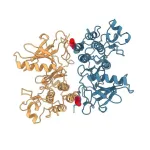Researchers from Florida Atlantic University’s Schmidt College of Medicine and academic colleagues say it’s more complicated. They suggest that selecting an OTC medication to alleviate mild symptoms of COVID-19 should be based on the entire benefit-to-risk profile of the patient. Moreover, they say clinical decisions should be made by the health care provider for each of his or her patients.
In a review, published in The American Journal of Medicine, researchers take a closer look at both the potential benefits and risks of acetaminophen, non-steroidal anti-inflammatory drugs (NSAIDs) – such as ibuprofen, as well as aspirin for the selection of OTC drugs to treat mild symptoms of COVID-19.
Traditional nonspecific NSAIDs such as the shorter acting ibuprofen and longer acting naproxen have been used to treat COVID-19. These widely used OTC drugs reversibly and non-specifically inhibit both cyclooxygenase enzyme isoforms. This results in systematic reduction in the synthesis of prostaglandins resulting in anti-inflammatory and fever-reducing effects. The researchers caution, however, that both ibuprofen and naproxen have similar but greater side effect profiles than aspirin, such as gastroenteritis and peptic ulcers.
Acetaminophen is one of the most frequently used OTC drugs in the U.S. and worldwide as a treatment for fever, allergic symptoms, headaches, myalgia, symptoms of the common cold, and most recently COVID-19. Acetaminophen was originally marketed as an alternative to aspirin for treatment of mild to moderate pain based on reduced mucosal gastrointestinal side effects. The authors caution that even at daily doses of 4,000 milligrams per day, generally accepted as safe for adults, acetaminophen can be toxic to the liver and may result in the onset of acute liver failure. In the U.S., acetaminophen is the leading reason for calls to Poison Control Centers with more than 100,000 cases per year. These circumstances account for more than 2,600 hospitalizations and 450 deaths in the U.S. due to acute liver failure.
Aspirin, or acetylsalicylic acid, inhibits the production of prostaglandins, which are responsible for mediating pain, inflammation and fever. The authors say that the beneficial effects of aspirin include anti-platelet, analgesic, antipyretic or anti-fever and anti-inflammatory properties. Aspirin is rapidly absorbed when taken orally and has a half-life of around four hours, after which it is mostly metabolized by the kidneys.
The researchers note that the anti-inflammatory benefits of aspirin should provide symptomatic relief of fever and body aches in COVID-19. They underscore, however, that health providers should view these in the context of the increased risks of bleeding, principally gastrointestinal. Further, COVID-19 itself may already predispose individuals to bleeding as well as to clotting abnormalities.
“We believe that health care providers should make individual clinical judgments for each of his or her patients in the selection of OTC drugs to treat symptoms of COVID-19. This judgement should be based on the entire benefit to risk profile of the patient,” said Charles H. Hennekens, M.D., Dr.PH, senior author, first Sir Richard Doll Professor and senior academic advisor in FAU’s Schmidt College of Medicine. “It is our belief that the individual health care provider knows far more about each of his or her patients than anyone, including expert members of guideline committees.”
The authors conclude that when the totality of evidence is complete, health care providers can make the most rational individual clinical judgements for their patients and policymakers for the health of the general public.
The authors believe that, at present, the totality of evidence is incomplete and requires reliable evidence from large- scale randomized trials designed a priori to do so, which is necessary to develop rational guidelines. They also believe that any guidelines should provide only guidance to health care providers. Currently, these considerations pose new clinical challenges for health care providers in prescribing OTC drugs to treat COVID-19.
“The astute and judicious individual clinical decision making of health care providers for each individual patient based on all these considerations has the potential to do far more good than harm. Finally, guidelines should provide guidance to individual health care providers,” said Hennekens.
Study co-authors are Gage Collamore, a second-year medical student; Mark J. DiCorcia, Ph.D., an associate professor and associate dean for educational affairs and admissions; Yash Nagpal, a second-year medical student; and Larry Fiedler, M.D., a board certified gastroenterologist and an affiliate associate professor, all within FAU’s Schmidt College of Medicine; Michael A. Garone, M.D., a board-certified gastroenterologist and clinical assistant professor at George Washington University Hospital; and David L. DeMets, Ph.D., emeritus Halperin Professor and founding chair of biostatistics and informatics; and Dennis G. Maki, M.D., the Ovid O. Meyer Professor of Medicine; both at the University of Wisconsin School of Medicine and Public Health.
Hennekens and Maki served for two years as lieutenant commanders in the U.S. Public Health Service as epidemic intelligence service (EIS) officers with the CDC. They served under Alexander D. Langmuir, M.D., who created the EIS and directed the epidemiology program at the CDC, as well as Donald A. Henderson, M.D., chief of the Virus Disease Surveillance Program at the CDC. Langmuir and Henderson made significant contributions to the eradication of polio and smallpox using widespread vaccinations and public health strategies of proven benefit and had extraordinary collaborations with local, state, federal and international health authorities.
- FAU -
About the Charles E. Schmidt College of Medicine:
FAU’s Charles E. Schmidt College of Medicine is one of approximately 157 accredited medical schools in the U.S. The college was launched in 2010, when the Florida Board of Governors made a landmark decision authorizing FAU to award the M.D. degree. After receiving approval from the Florida legislature and the governor, it became the 134th allopathic medical school in North America. With more than 70 full and part-time faculty and more than 1,300 affiliate faculty, the college matriculates 64 medical students each year and has been nationally recognized for its innovative curriculum. To further FAU’s commitment to increase much needed medical residency positions in Palm Beach County and to ensure that the region will continue to have an adequate and well-trained physician workforce, the FAU Charles E. Schmidt College of Medicine Consortium for Graduate Medical Education (GME) was formed in fall 2011 with five leading hospitals in Palm Beach County. The Consortium currently has five Accreditation Council for Graduate Medical Education (ACGME) accredited residencies including internal medicine, surgery, emergency medicine, psychiatry, and neurology.
About Florida Atlantic University:
Florida Atlantic University, established in 1961, officially opened its doors in 1964 as the fifth public university in Florida. Today, the University serves more than 30,000 undergraduate and graduate students across six campuses located along the southeast Florida coast. In recent years, the University has doubled its research expenditures and outpaced its peers in student achievement rates. Through the coexistence of access and excellence, FAU embodies an innovative model where traditional achievement gaps vanish. FAU is designated a Hispanic-serving institution, ranked as a top public university by U.S. News & World Report and a High Research Activity institution by the Carnegie Foundation for the Advancement of Teaching. For more information, visit www.fau.edu.
END







